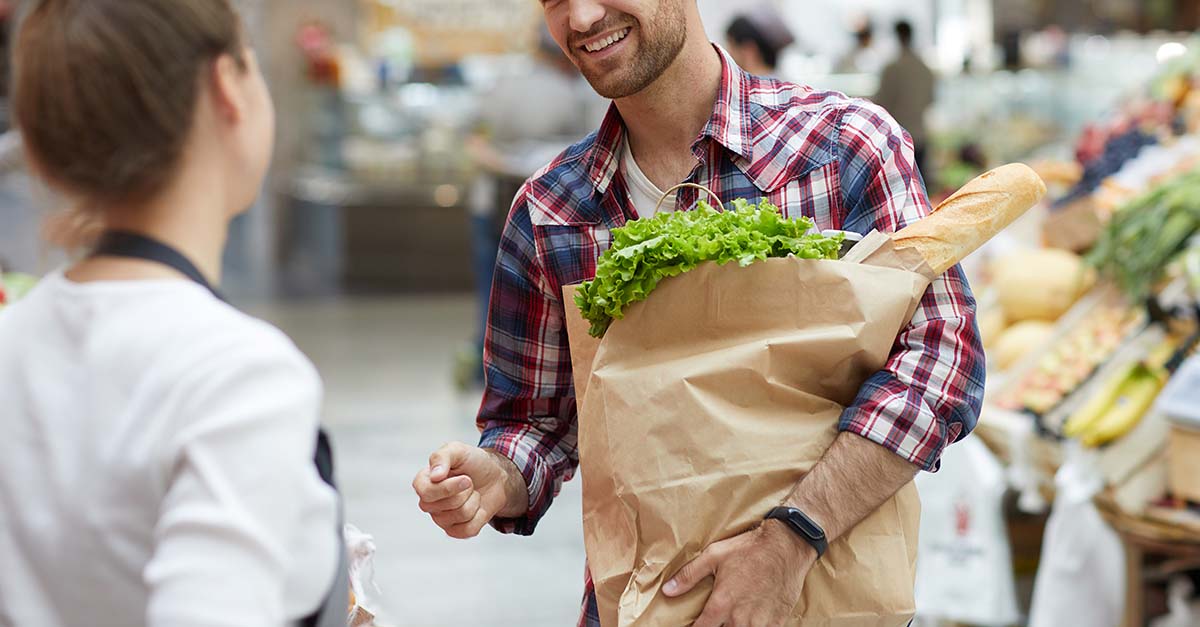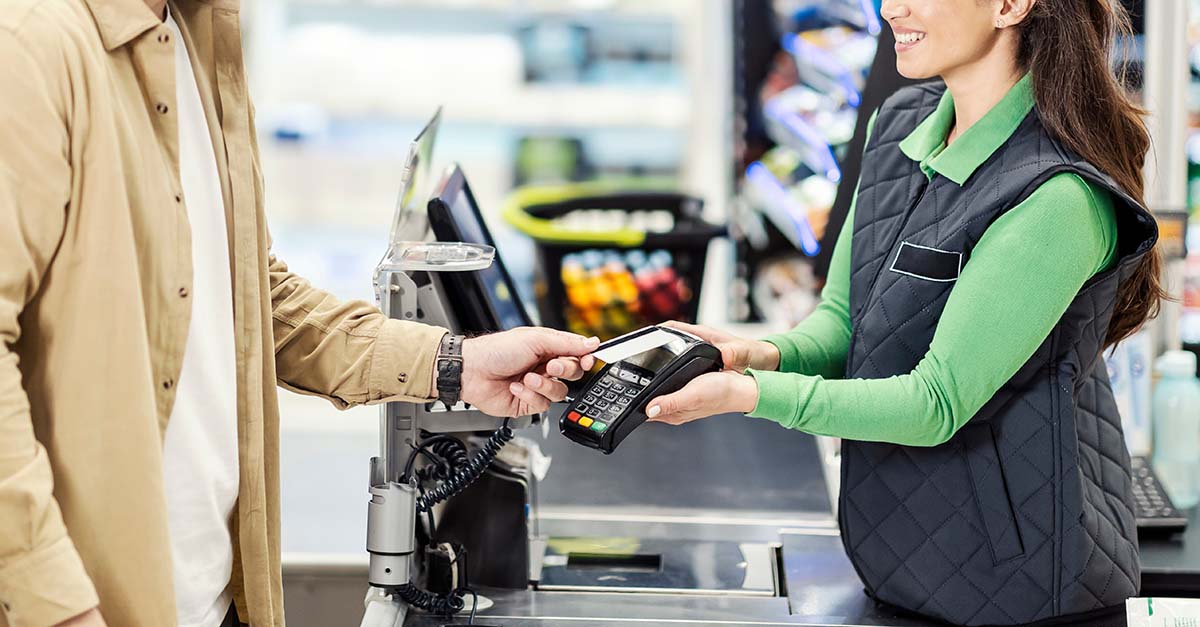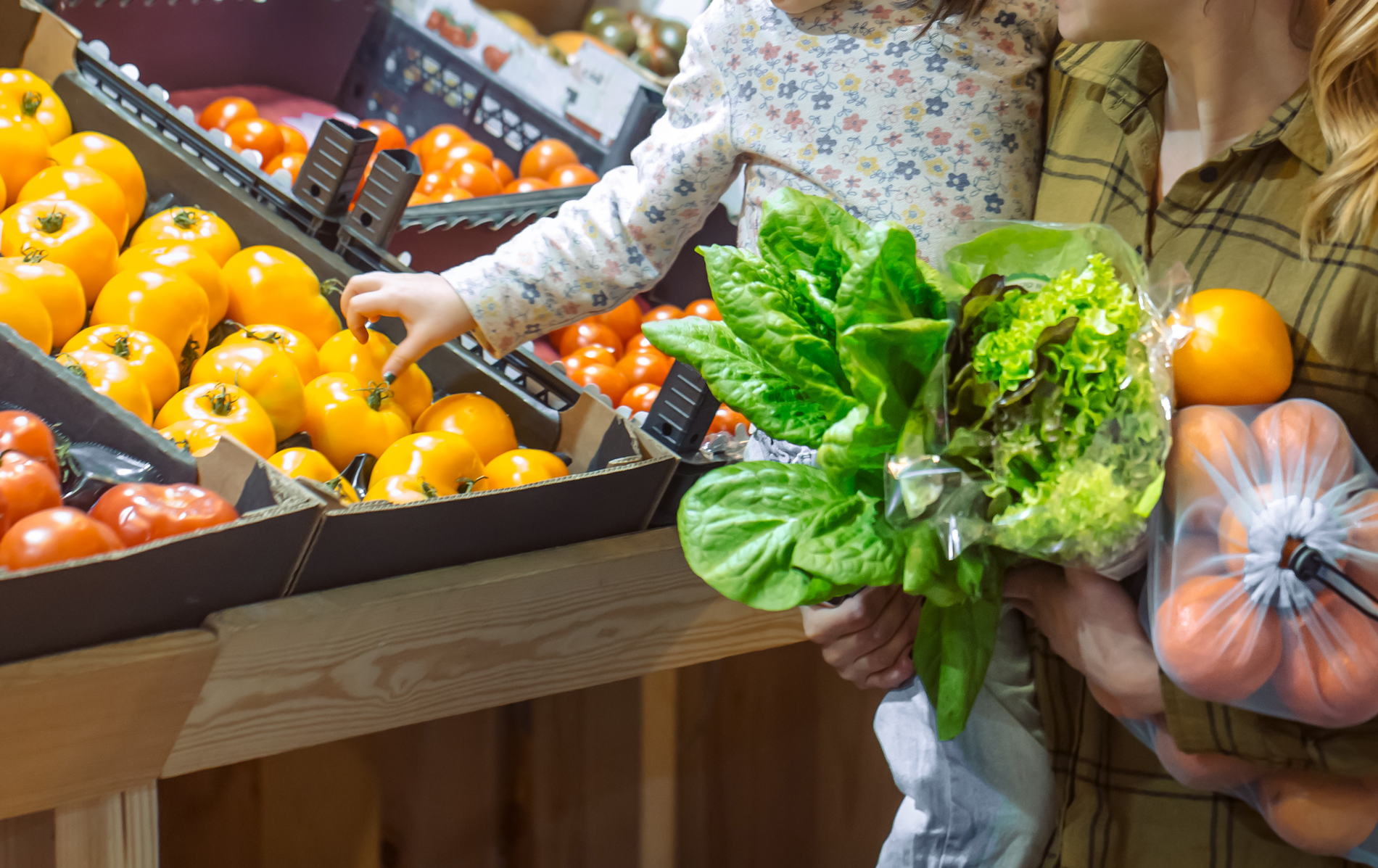Podcast: Upside talks ‘uncommitted customers’ with Supermarket News
Upside CEO Alex Kinnier discusses how loyalty members don’t always behave loyally — and how grocers can win more foot traffic.

The Upside Team
Podcast: Upside talks ‘uncommitted customers’ with Supermarket News


How do grocers win more trips and spend from customers that, by nature, aren’t showing any interest in committing to any one store? It’s an increasingly common dilemma in the grocery industry, and in order to continue growing, grocers have to confront it.
Uncommitted shopping behavior is the focus of Upside’s recent Consumer Spend Report. Upside CEO Alex Kinnier and host Chloe Riley recently discussed that report and its key findings on the Supermarket News podcast “SN TechWire.” Watch the full interview here, and scroll down for highlights from the conversation.
What’s happening with customer loyalty?
The crux of the Consumer Spend Report, the insights from which relied on billions of retail transactions and direct feedback from more than 7,000 consumers, is the concept of the “uncommitted customer.” These shoppers prioritize the value they derive from any given transaction over loyalty to a particular brand or retailer, thus behaving in an uncommitted fashion.
To a certain extent, this concept has always existed. But Alex says that economic uncertainty and the proliferation of choice in retail have combined to create more uncommitted customers than ever before. These shoppers are shifting all of their monthly spend between any number of retailers, in an ever-changing pattern, in order to optimize for their budget.
Today, they make up the majority of shoppers in America, and it doesn’t appear that they’ll be disappearing. “This learned behavior is not something we believe that they’re going to unlearn anytime soon," Alex said on the podcast.
The loyalty program: Part solution, part problem
In response to the rise in uncommitted customers, retailers have invested in a number of initiatives to win more visits and spend from these shoppers. They’re subsidizing programs that increase convenience for shoppers, like third-party delivery, and curbside pickup. They’re remodeling stores and improving their prepared food options to make impressions on shoppers that do decide to walk through the doors. And finally, almost all grocers are investing heavily in a loyalty program.
These programs are valuable, Alex says, because consumers say that they love loyalty. In a recent Upside survey of the general population, more than 90% of respondents said they consider loyalty (or its absence) when making decisions about where to shop. Furthermore, 72% of respondents agree it is important to earn loyalty rewards or cash back at a given retailer.
But there’s a problem. Across the board, loyalty programs are valuable and easy to use. For that reason, customers have begun joining a lot of loyalty programs — the average consumer belongs to 19 programs in 2024, according to the Bond Loyalty Report, actively engaging in less than half of those. In short, your customer might belong to your loyalty program, but they also belong to your competitor’s.
"The consumer is more loyal to the concept of loyalty programs than they are to any retailer,” Alex said.
Share this article:
The Upside team is made up of data scientists and industry experts who are passionate about delivering empowering content to our readers. With a focus on providing practical insights and meaningful perspectives, we create engaging materials across a wide range of topics. From exploring industry trends and offering expert analysis to sharing useful tips and inspiring ideas, our team works diligently to provide you with the information you need to thrive.
Request a demo
Request a demo of our platform with no obligation. Our team of industry experts will reach out to learn more about your unique business needs.
















